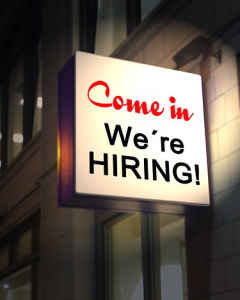Employment trends expert discusses troubling new findings
 Rob Wilson, president of Employco USA and employment trends expert is unsurprised by these latest findings. He says, “Past numbers show that increasing the minimum wage has a direct and negative impact not only on businesses, but on workers themselves. Research by economists Jeffrey Clemens and Michael Wither of the University of California-San Diego showed that minimum wage increases were responsible for 14 percent of the job losses suffered between 2006 and 2012.”
Rob Wilson, president of Employco USA and employment trends expert is unsurprised by these latest findings. He says, “Past numbers show that increasing the minimum wage has a direct and negative impact not only on businesses, but on workers themselves. Research by economists Jeffrey Clemens and Michael Wither of the University of California-San Diego showed that minimum wage increases were responsible for 14 percent of the job losses suffered between 2006 and 2012.”
Furthermore, Wilson says, only 1.8 percent of Americans earn minimum wage.
Wilson explains, “The reality is that most companies endeavor to pay a competitive wage to lure talent and ensure employee loyalty. However, certain positions (such as retail and hospitality) have a very thin margin of profit. These employers can only afford to pay workers minimum wage if they want to stay profitable and remain in business. An increase hits their businesses hard, which is why so many people have actually lost their jobs due to the minimum wage increases across the country.”
There is another downside as well.
“Traditionally, minimum wage jobs have been employment opportunities for young adults and those first entering the workforce. When these jobs are reduced, teens and other inexperienced workers suffer as a result.”
For more on this topic, please contact Rob Wilson at rwilson@thewilsoncompanies.com.
 A recent survey found that 74 percent of people say that they are looking for a new job. Although that number might sound high, employment expert Rob Wilson says that the number is accurate. And here’s something else: Hating your job now can equal poorer health even years in the future.
A recent survey found that 74 percent of people say that they are looking for a new job. Although that number might sound high, employment expert Rob Wilson says that the number is accurate. And here’s something else: Hating your job now can equal poorer health even years in the future. With summer temperatures climbing, employees are looking for ways to keep cool while in the office. But what happens when office dress codes are biased towards the cis community?
With summer temperatures climbing, employees are looking for ways to keep cool while in the office. But what happens when office dress codes are biased towards the cis community?